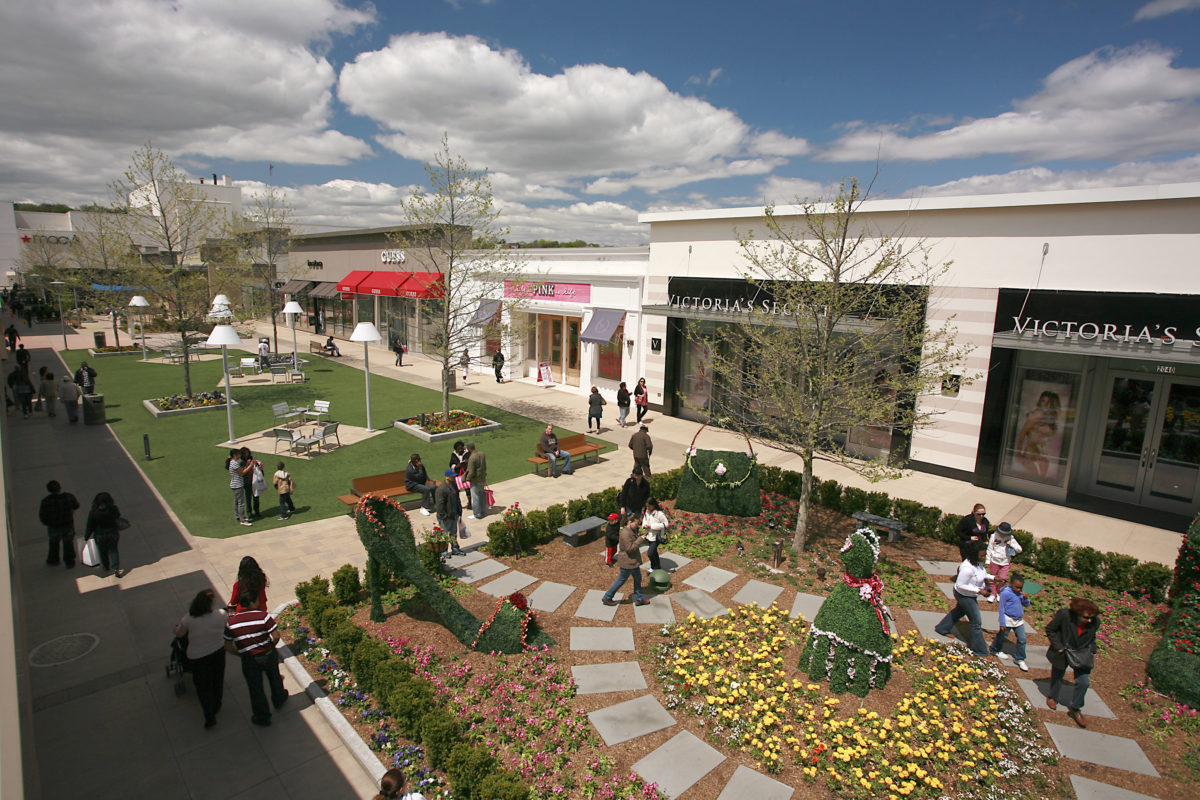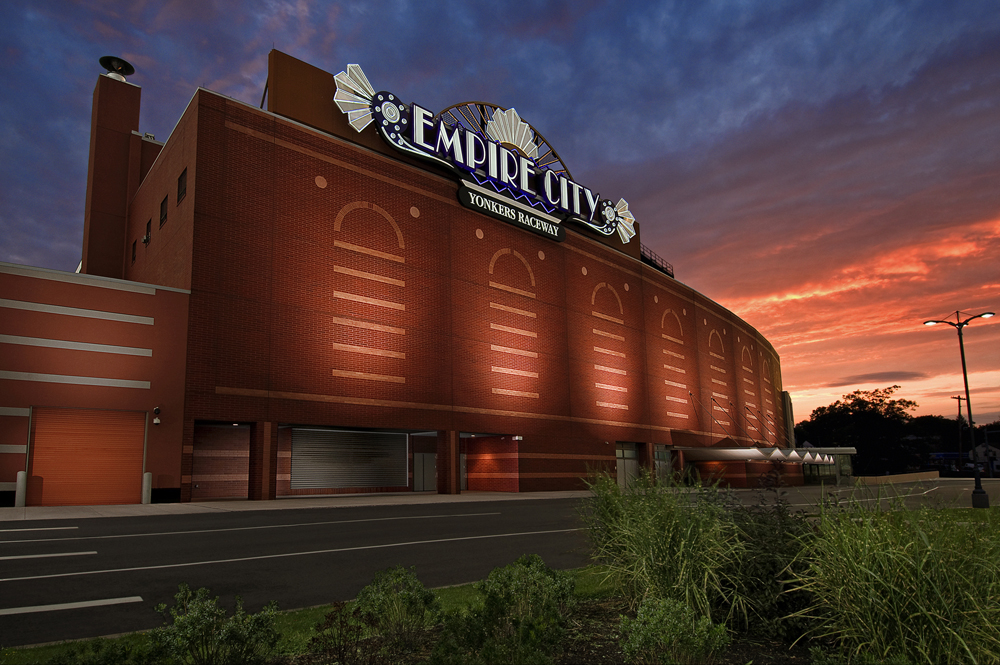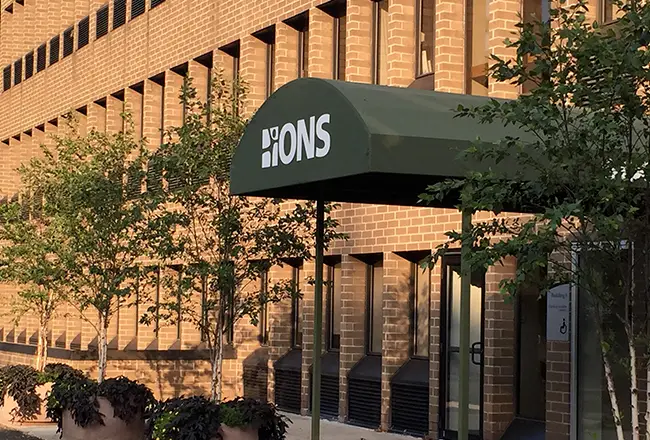In the fall of 1987, a representative of incumbent Yonkers Mayor Angelo Martinelli, who had been in office for most of the previous 15 years, called lifelong resident John Tallon as part of a campaign phone canvass, asking if the mayor could rely on Tallon”™s vote in November.
Martinelli could rely on Tallon”™s vote, the then-84-year-old said, when the mayor did something about the “disgrace” that was Getty Square, the city”™s beleaguered downtown shopping and civic district.

Martinelli was unseated in the election by upstart Nicholas Wasicsko, whose time as mayor would be marked by progress on the city”™s compliance with a longstanding federal housing desegregation order, so it would fall to successive Yonkers mayors to address Getty Square and other areas of economic concern in the city. Tallon died in 1991, well before the revitalization of the city”™s downtown and waterfront, which began more than a decade later and continues to this day.
While waterfront and downtown development continues, recent crime data from Trulia.com suggests Getty Square still isn”™t where anyone would like it to ultimately be. There are other areas in Yonkers that have been granted new life over the last decade and now stand to be much brighter parts of Yonkers”™ future.
The city”™s current mayor, two-term Democrat Mike Spano, has seen much of this more recent development come to fruition. His director of communications, Christina Gilmartin, told the Business Journal there”™s a significant reversal in how Yonkers interacts with development and investment businesses since the recession of 2008.
“Yonkers development now has been reignited in all four corners of the city,” Gilmartin said. “Developers are now approaching the city versus us seeking them out. The investments ”¦ have paid off, improving our local economy. (Developers) see that Yonkers can be profitable and are investing more dollars in our city”™s future.”


Yonkers is known as a city built on hills, seven hills to be specific. One of those, Ridge Hill, was once home to more socially concerned enterprises ”” a church, a hospital, a sanitarium ”” before the city leased the land to aerospace giant Lockheed Martin in 2000 as part of the Yonkers Industrial Development Agency”™s effort to spur job growth. When that didn”™t happen to the agency”™s satisfaction, the city bought out Lockheed Martin”™s contract and sold the remaining land, 84 acres, to Forest City Enterprises, a Cleveland-based developer, which broke ground on a mixed-use complex in November 2007.
Completed and opened in 2011, the project, then known as Ridge Hill Village, is situated between Interstate 87 and the Sprain Brook Parkway and features several branded retail anchor stores, restaurants and, as of March 2013, the first LEGOland in the Northeast, a $12 million, 32,300-square-foot facility.


Alongside the open-air retail mall is The Monarch, a 200,000-square-foot, 162-unit condominium complex owned by the Horizon Group, a real estate investor and developer that already had sites on Long Island and in New Jersey.
Last October, Forest City agreed to sell Ridge Hill to Australia-based QIC, which has owned a stake in the facility since February 2016, as part of a much larger, two-phase deal that included nine other U.S. malls. Andrew Hardy, QIC”™s general manager for Ridge Hill, told the Business Journal it”™s important for Ridge Hill to work with the surrounding community on outreach programs that promote the arts scene as well as local charities, all while demonstrating why Ridge Hill is a great place to work.
One project Hardy cited is Ridge Hill”™s new community garden, which was created through a partnership with the facility”™s vendors, tenants Lowe”™s and Whole Foods, Habitat for Humanity and the Yonkers public school district. Overall 600 students have participated, yielding results like a late-summer harvest of food donated to Feeding Westchester, an Elmsford-based nonprofit. The garden, Hardy said, also serves as an educational forum for the kids who participate, as they learn about sustainability, healthy eating alternatives, composting, recycling and growing their own food.
Although The Monarch is not owned by Ridge Hill/QIC and has filled at a slower rate than was initially hoped, Hardy said the amount of residential units currently under construction across Yonkers is “a magnificent story for the city.” Adding residential units has always been part of Ridge Hill”™s overall strategy for the site, he said.
“We always want to strive to engage the community by enhancing the experience for our guests,” Hardy said. “We will never relax in our quest to be the best.”
Creating a massive, brand-new, mixed-use campus infused with everything from an REI, to the Apple Store, to a place to indoor skydive ”” which happens to be steps from your condo ”” is one thing if you can do it, but what do you do when your outdoor mall facility is already more than 50 years old and in need of a refresh?


Located about three miles south of Ridge Hill, the Cross County Shopping Center was Westchester County”™s first mall. Once anchored by now defunct department stores John Wanamaker and Gimbels and lined largely with independent shops ”” though there were two Woolworths stores for some time as well ”” Cross County was in a state of disarray by the end of the 1990s. Stores disappeared and the site was constantly covered in some sort of scaffolding, its various pathways blocked off in one direction or another. It was a shell of its former self. As recently as the late ”˜70s to the mid-”˜80s, Cross County was one of the marquee shopping destinations in the county and seasonally hosted things like big cat circus shows, travelling puppet shows and an elaborate Christmas display complete with a full-fledged mobile house for Santa Claus.
Something had to change. Basically, everything did.
“In 2006, the managing partners for Cross County ”¦ were carefully evaluating the marketplace and which venues were seeing successes in attracting retailers and customers,” Liz Pollack, senior marketing manager for Cross County, told the Business Journal. “Following a tour of the newly renovated Queens Center in Elmhurst, the board of directors met to ”¦ redevelop, manage and lease Cross County Shopping Center.”
Macerich, an S&P Fortune 500 developer of retail real estate, was the company chosen to bring Cross County forward and revitalize the site for the current marketplace.
“A strategic master plan was created to redesign existing property, bring in new retailers, renovate existing retailers and upgrade the look and feel of the common areas,” Pollack said, “so that Cross County could maximize its historic start in the community and stand out amongst new competition.”


Zara is a Cross County retailer now, as are Hollister, Pandora and H&M. Family-friendly chain restaurants are along the center”™s outskirts. The National Amusements movie theater across from the main shopping complex was recently retrofitted with electric reclining seats and an enhanced concession stand. Back at the main site, Cross County now features a 13,000-square-foot satellite campus for Westchester Community College, and, at the center of it all, a Hyatt Place Hotel extends six stories skyward, the interior clean, modern and unrecognizable from the building”™s former life as office space.
Describing the desired vibe as “suburban ”¦ with urban nuances and mixed-use elements,” Pollack said the last of those is something Cross County is looking to explore further, which could prove advantageous with a taxi service, four banks, a Super Stop & Shop grocery store, a travel agent and a fitness center already part of the overhauled experience.
“Redeveloping Cross County was exciting and challenging,” Pollack said, citing the successful effort to bring a facility “built on a swamp in the 1950s” up to modern code. “Our challenge is to remain fully occupied with the right retailers and still surprise and delight our shoppers with the newest trends and opportunities to eat, shop and be entertained.”
Of course, that”™s all well and good when you have a 50-year-old Yonkers mainstay to work with as your canvas, but what if you don”™t even have that? What if you”™re just a shop owner in a local Yonkers neighborhood?
The McLean Avenue Merchants Association (MAMA) came about in a somewhat roundabout way, but is gaining strength and stature in its quest to make the stores, restaurants and other businesses along Yonkers”™ “Emerald Mile” as vibrant and essential as possible.
Association chairman R.J. Puma explains.
“My family moved back to the area in 2004 to take over the family business, Anna Artuso”™s Pastry Shop,” Puma said. “We held a mini festival in 2006 for my grandmother”™s, Anna Artuso Puma, birthday and the bakery”™s anniversary.”
That small festival drew more than 1,000 people to the area immediately surrounding the bakery, Puma said, including then-Yonkers Mayor Phil Amicone, who told Puma something like that festival should take place annually and incorporate the entire McLean business district.
Puma said he was proud to hear the mayor”™s reaction to his family”™s event, but it was a lot of work and not something he realized could benefit the entire area until 2011, when the first McLean Avenue Fall Festival was held following the formal founding of the modern MAMA earlier that year.
In addition to the fall festival, the merchants association was formed to look at the added possibilities of beautification projects and an annual parade. By 2013, these projects were well underway with two parades in the books and holiday activities including a Christmas tree lighting and adorning the McLean merchants corridor from Bronx River Road to Lee Avenue ”” a more than 2-mile stretch ”” with Christmas lights.


The association has partnered with both the city and larger business concerns ”” the nearby Empire City Casino provides parking for the fall festivals ”” to help make these events, which are drawing growing crowds, happen.
Puma will be quick to tell you there”™s a lot more to MAMA than a few annual events. Association members rely on and help each other. Many of the association”™s discussions are held on the street, informally, in front of members”™ respective businesses.
“We are friends, family, business associates and partners,” Puma said. “Our conversations ”¦ are never just a ”˜hello”™ or ”˜good morning.”™ They are actual conversations, discussions about business, concerns for family members. There is no community or vibe like the one here on McClean Avenue.”
While that may be so, the association has also used its formal meetings to invite local and state politicians into its midst ”” state Sen. Shelley Mayer, a lifelong Yonkers resident, spoke to the group about health care issues while she was a member of the Assembly, Puma said ”” which helps to inform the membership and increase the association”™s influence. Another step MAMA has taken, Puma said, is partnering with startup organizations like the Yonkers Film Festival as well as Yonkers stalwarts like Empire City and the Cross County Shopping Center, which Puma said the association always sees as partners for mutual advantage rather than competition looking to run “the oldest and best mom-and-pop district in Yonkers” out of business.
With MAMA proving economic development doesn”™t have to be brand new, or occur on a grand scale, to be effective, Puma said there are still problems to be overcome ”” there”™s an overabundance of truck traffic along the Emerald Mile, which also suffers from parking problems. To that end, Puma said he”™d like to see the entire area become a business improvement district, which would involve all the merchants along McLean Avenue, something he said he”™s wanted for some time.
Yonkers has come quite a way from its waterfront and downtown development. Ridge Hill”™s Hardy said residential developers are now starting to dot the city with large-scale projects targeting young professionals.




















